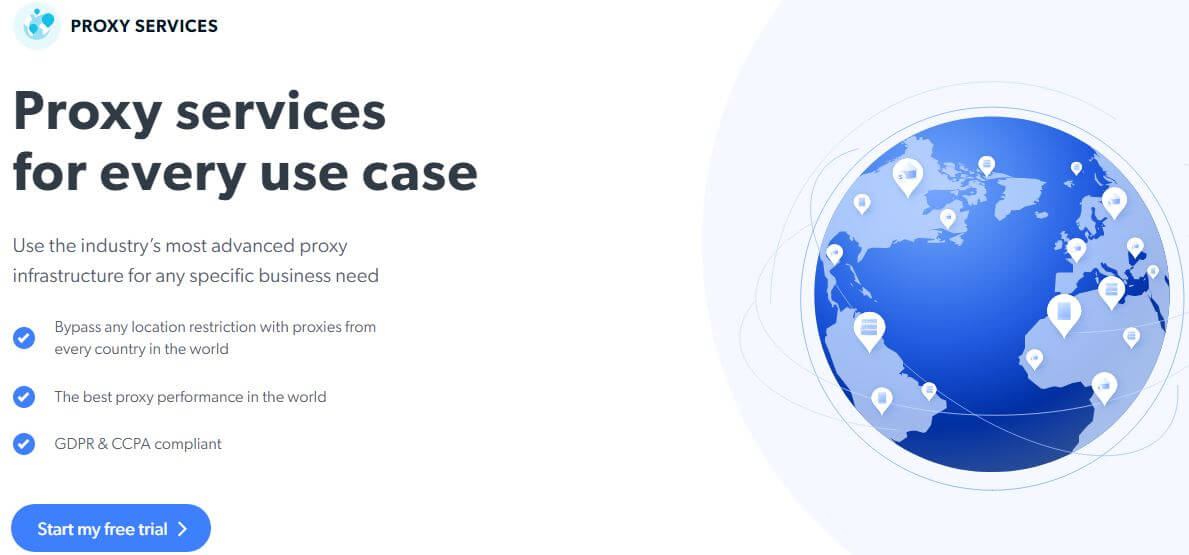

So if a proxy takes care of multiple servers with the same purpose, it tries to direct the traffic evenly, preventing lag or delays. Although these proxies are great for security and caching, another benefit is load balancing. So whenever a client makes a request, it does not go directly to the server but to the proxy, which acts on its behalf. While forward proxies protect clients, reverse proxies do the same for servers. This can also be set up on an entire network of users, granting or denying their requests for websites and caching them for faster access. Just like any other traffic, proxies can also be inbound or outbound based on if they’re set up on the client or the server-side: Forward proxiesįorward proxies are a general type of proxy, where a client sets up an alternative IP address to gain access to blocked websites or simply to hide and mask their identity. datacenter proxy Proxies based on direction of traffic flow While they are cheaper and faster, they are easier to get blacklisted if the user is doing traffic-intensive tasks, since, compared to residential proxies, the IP does not belong to an actual home.

These kinds of proxies are not provided by ISPs, but rather from third parties such as web hosting services and are hosted in data centers worldwide. This can be useful when dealing with social media and other networks that require the user to log in.

On the other hand, static proxies can be used in situations where a user needs the same IP address for recurring sessions. Although both can be used to change geographical location, mobile proxies appear more genuine, making them harder for anti-bot systems to identify. While static proxies are connected to a single IP home address, mobile proxies use devices connected to a mobile network connection (e.g., 3G, 4G, or 5G). There are also other specialized types of residential proxies - static and mobile proxies, which are generally more expensive. But since these IPs need to be bought or rented from ISPs, they are naturally more expensive to operate. Residential proxies are often used for IP address rotation, which can be very helpful when web scraping. This makes the proxy almost indistinguishable from a regular user, making it much harder for websites to identify a proxy user and block them. These proxies use IP addresses provided directly by ISPs (Internet Service Providers) and are therefore linked to actual homes and devices in various cities and countries. There are two main proxy types based on how they acquire this IP and where it is located: Residential proxies Proxies based on location of IP addressĪ proxy’s primary goal is to hide your IP address by replacing it with a new one. This article will look at the various types of proxies based on how they obtain their IP addresses, their direction of traffic flow, service, and level of anonymity. Need an introduction to proxies? Find out how a proxy server works and why people use them.īut for the proxy to work in accordance with the user’s needs, it has to be configured and selected accordingly. They can also be great helpers when extracting data from websites, preventing your IP address from getting blocked or blacklisted while scraping. Proxies can bring many benefits to their users: they can influence the speed of traffic flow, its security, and accessibility. What’s the difference between a residential and datacenter proxy, or a forward and reverse proxy? Learn all about the various types of proxies and how you can differentiate them based on location of IP address, direction of traffic flow, service, and level of anonymity.


 0 kommentar(er)
0 kommentar(er)
